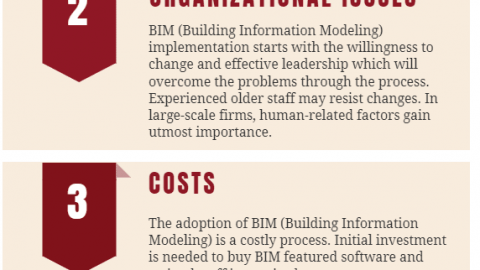Best Practices to Obtain Optimal Supply Chain Security
In business, the term optimal “supply chain security” refers to the procedures and measures taken to protect the integrity and continuity of the supply chain from risks and threats. The secure supply chain includes all the steps to get a product or service from its origin to the customer, including sourcing, manufacturing, logistics, and distribution. Supply chain cyber security is vital because disruptions at any stage can cause significant delays or shortages. For example, if a supplier cannot meet its production quota, this may cause a ripple effect down the line, impacting other businesses that rely on that supplier. In addition, disruptions can also lead to increased costs for businesses. There are various ways to improve supply chain security using supply chain security best practices.
Table of Contents
One way is to conduct risk assessments at each stage of the supply chain. This helps identify potential vulnerabilities to be addressed before they become an issue.
The role of technology in optimal supply chain security
The role of technology in supply chain security cannot be understated. In today’s interconnected world, where businesses span the globe, the supply chain has become increasingly complex and vulnerable to disruptions. The consequences of a breach can be catastrophic, not just for the company involved but for the entire economy. That’s why businesses must have a comprehensive strategy to protect their supply chains.
Technology plays an essential role in supply chain security. By using tracking and visibility tools, businesses can gain real-time insights into their supply chains, which helps them to identify risks and take proactive steps to mitigate them. For example, if there is a disruption at one point in the supply chain, businesses can use visibility tools to reroute shipments and avoid delays.
Is Digital Supply Chain Security Exist?
In light of recent high-profile cyberattacks, the question of digital supply chain security is more relevant than ever. Organizations must ensure that their data and systems are secure internally and externally.

Cyber security in the supply chain is critical now. According to a study by Gartner, Inc., it is estimated that by 2021, one in every four companies will have suffered a material loss due to a cyber attack. The rising threat has led many companies to re-evaluate their security measures, specifically in their supply chains. Most supply chains’ vastness and complexity make them vulnerable to cyber-attacks.
There are many steps that companies can take to increase security in their supply chains. One best practice is for companies to develop comprehensive cyber security strategies that address internal and external risks.
Organizations can follow several best practices to improve their supply chain security. First, they should perform regular risk assessments and vulnerability scans. They should also have policies and procedures for handling data security breaches. Additionally, it is crucial to educate employees about cybersecurity threats and how to mitigate them.
Organizations should also consider investing in security technologies such as firewalls, intrusion detection systems, and encryption. By taking these steps, organizations can better protect their data and minimize the risk of supply chain disruptions due to cyberattacks.
Best practices for supply chain security
Regarding supply chain security, there are certain best practices that companies should follow to ensure the safety and security of their products and materials.
One of the most important things companies can do is to perform a risk assessment of their entire supply chain. It will help them identify potential weaknesses that criminals or terrorists could exploit.
They should also have a clear and well-defined security policy in place that all members of the supply chain must follow. This policy should cover everything from handling sensitive materials to what type of background checks should be performed on employees.
Companies should also use the latest technology to help them keep track of their inventory and shipments. It includes GPS tracking devices and RFID tags. Using these technologies, companies can quickly locate any missing or stolen items.
Not only do multi-enterprise business networks make it easier for companies to share data with one another, but they also give participating companies direct access to the information they need to view, discuss, and work together on it. Participating businesses are demanding more control over the data, as well as the ability to decide who they share it with and what information each party with permission can view.
During the course of a single order-to-cash cycle, data is transferred multiple times, sometimes in the form of paper and sometimes in an electronic format. Every time data is passed from one entity to another or moved within a system, there is a chance that it will be altered in some way, whether on purpose or by accident. This can happen for a variety of reasons.
How to secure it?
There are a few best practices that organizations should follow regarding supply chain cyber security. Firstly, it’s essential to have a clear understanding of the supply chain and all of its components. It includes mapping out the different production stages and identifying potential risks at each stage. Once the risks have been identified, companies can implement mitigation strategies to reduce the likelihood of an incident occurring.
Moreover, building strong relationships with suppliers and other suppliers in the supply chain is vital. By collaborating closely with these partners, companies can better identify potential risks and develop contingency plans in case of an incident.
Furthermore, open communication channels between all parties involved in the supply chain will help to ensure that everyone is aware of potential risks and knows how to respond in case something does happen.
Final words:
It is evident that secure supply chains are essential for the success of businesses. They can protect their assets and reputation by having a secure supply chain. In addition, businesses can avoid costly disruptions and ensure the continuity of their operations. Consequently, businesses should invest in secure supply chains.

Business Developmeny Manager at PAS InfoCom Technologies Ltd. Experienced in project management with a demonstrated history of working in the information technology and services industry.










